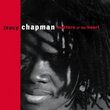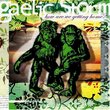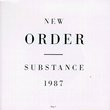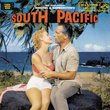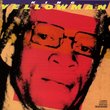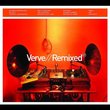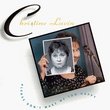| All Artists: Stan Ridgway Title: Holiday in Dirt Members Wishing: 3 Total Copies: 0 Label: New West Records Release Date: 2/12/2002 Genres: Alternative Rock, Folk, Pop, Rock Style: Singer-Songwriters Number of Discs: 1 SwapaCD Credits: 1 UPC: 607396603329 |
Search - Stan Ridgway :: Holiday in Dirt
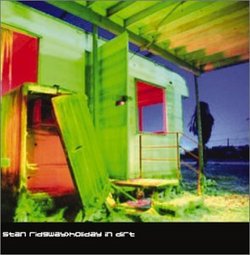 | Stan Ridgway Holiday in Dirt Genres: Alternative Rock, Folk, Pop, Rock
Features 13 rare & unreleased tracks. New West Records. |
Larger Image |
CD DetailsSynopsis
Album Description Features 13 rare & unreleased tracks. New West Records. Similarly Requested CDs
|
CD ReviewsVintange Stan! 09/27/2002 (5 out of 5 stars) ""Holidays in Dirt" is a remarkably cohesive album, considering that it's made up of rare and/or unreleased material. In fact, it holds up as well as any of Stan's better albums, and sounds more like an album than "Anatomy" (which to me felt more like it was cobbled together from bits and pieces).HID has everything that has endured me to SR over the years. Losers and hard luck cases and guys named Pete whose lives didn't turn out quite the way they planned. Moments of joy and moments of desperation and moments of unbearable angst. Atmosphere pieces that make you check in the closets and under the bed.Great stuff." Holiday In Dirt srfan | Kansas City, KS | 02/25/2002 (5 out of 5 stars) "Holiday In Dirt is a collection of rare and unreleased tracks, but it hangs together well. While there's no unifying concept to the disc, it's cohesive and has a strong sense of place. Ridgway is to Los Angeles as Lou Reed is to New York -- no place else could have produced him. He mixes the traditional with the new and has an openness to music as pure sound that comes, I think, from growing up in a city whose major industry is movies. Working in that atmosphere (at least one website indicates that Wall of Voodoo was formed to write music for low-budget movies) may have suggested to him the dramatic possibilities of sound -- a particularly important discovery for someone whose narratives are so complex. Whatever his influences, the salient feature of Ridgway's discs is their sonic richness. The quality of his recordings is especially impressive given that the last three have been independent releases produced, one assumes, on limited budgets. His discs have a lot going on in them, but everything's spread out across a wide soundstage in a kind of aural Cinemascope. For all the sonic detail Ridgway puts into his music, it rarely feels crowded. When a song does seem densely packed, as does "End of the Line" here, it sounds intentionally so. Holiday In Dirt contains two versions of "Beloved Movie Star" that shed some light on how Ridgway works. The first version, which opens the disc, is a lush arrangement that features a Duane Eddy-like guitar, drenched in reverb and tremolo, and a strummed harp. Synthesizers and other keyboards create a wash of sound that carries Ridgway's voice along. The second version is an earlier, demo recording of the track. It's much more spare. The harp still plays a prominent role and some of the keyboard touches that made their way to the finished track are hinted at in this version, but, overall, it's less focused. Ridgway says in the liner notes that he prefers the demo, which is a little longer. I disagree; his instincts were correct when he revised the lyrics and altered his approach. He changed one verse and removed another altogether and sings in a less-inflected voice. The result is not just a tighter recording, but a stronger, more compassionate story. The vocals on the demo feel condescending, and the original verses needlessly restate some harsh observations about the perils of the movie business. What I found striking when I played the two versions side by side is how, even in a demo, Ridgway knows sonically what he wants to achieve. Certainly there are musical elements that are more developed in the final recording and details are added, but the overall feel is there at the beginning. As the music became more clearly defined, Ridgway toned down the vocals and cut some lyrics, in effect streamlining the story and allowing the music to evoke a deeper story than the words tell. One of the most enjoyable aspects of Ridgway's music is his willingness to bring in ideas from sources far and wide. If a surf guitar is what will put his idea across, he'll use it. A particularly strong influence appears to be film composer Ennio Morricone -- listen to the way Ridgway uses harmonica in a tune like "Time Inside." He doesn't recycle ideas, though. He borrows techniques in order to create an atmosphere for the story he's telling. In that sense, there's an almost cinematic quality to his work.The recordings for Holiday In Dirt come from several sources and they vary in quality from very good to DIY. Ridgway is so sure of his goals that he isn't going to et our notions of audiophile sound get in his way of creating an effect. For instance, one of the tunes, "Amnesia," was "sung through a three-inch, battery-powered speaker from Radio Shack. I really liked the sound." He's right; it sounds great. So oes the rest of the disc." Can't Complain. Jason Stein | San Diego, CA United States | 03/09/2002 (4 out of 5 stars) "It was a nice idea for Stan to give his fans some unreleased tracks to munch on. There are some good songs here like "My Beloved Movie Star" both versions, "Garage Band '69", "Bing Can't Walk" and "Whatever Happened To You?" But some of the other songs are not as memorable such as "Time Inside", "Act Of Faith" or "Amnesia". As always, Stan's trademark quirky humor is present in abundance here, and what would a Ridgway cd be without it? "Holiday In Dirt" is a nice appetizer while we wait for new material."
|

 Track Listings (13) - Disc #1
Track Listings (13) - Disc #1
